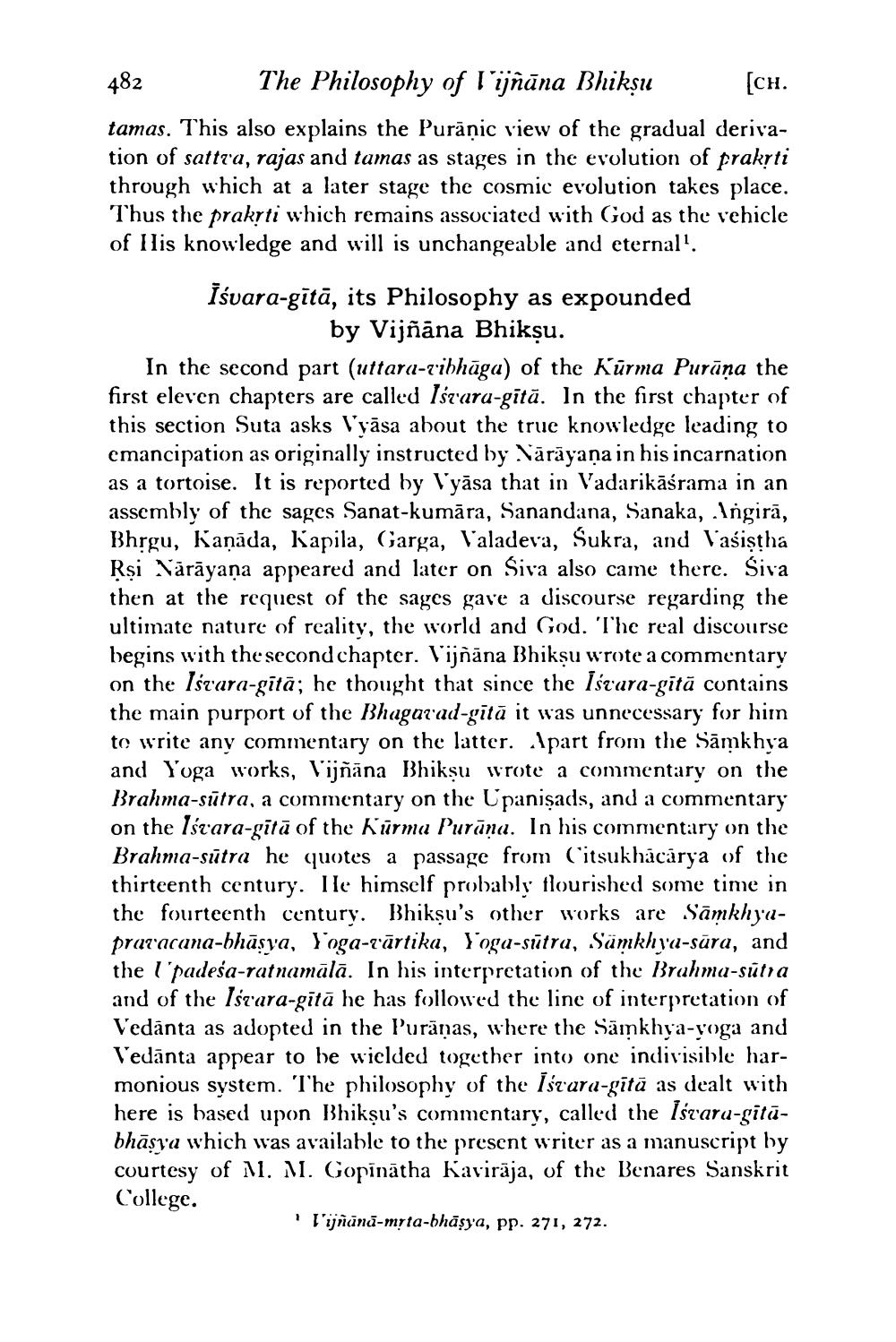________________
482
The Philosophy of l'ijñāna Bhikṣu (ch. tamas. This also explains the Purānic view of the gradual derivation of sattra, rajas and tamas as stages in the evolution of prakrti through which at a later stage the cosmic evolution takes place. Thus the prakrti which remains associated with God as the vehicle of His knowledge and will is unchangeable and eternal'.
īśvara-gītā, its Philosophy as expounded
by Vijñāna Bhikṣu. In the second part (uttara-ribhāga) of the Kūrma Purāna the first eleven chapters are called Istara-gītā. In the first chapter of this section Suta asks l'yāsa about the true knowledge leading to emancipation as originally instructed by Vārāyaṇa in his incarnation as a tortoise. It is reported by l'yāsa that in Vadarikāśrama in an assembly of the sages Sanat-kumāra, Sanandana, Sanaka, Ingirā, Bhrgu, kaņāda, kapila, Garga, Valadeva, Sukra, and Vašistha Rşi Nārāyaṇa appeared and later on Siva also came there. Siva then at the request of the sages gave a discourse regarding the ultimate nature of reality, the world and God. The real discourse begins with the second chapter. Vijñāna Bhikṣu wrote a commentary on the Israra-gitā; he thought that since the iškara-gitā contains the main purport of the Bhagavad-gitā it was unnecessary for him to write any commentary on the latter. Ipart from the Sāmkhya and Yoga works, Vijñāna Bhiksu wrote a commentary on the Brahma-sūtra, a commentary on the Upanişads, and a commentary on the lśkara-gītā of the Kūrma Purāna. In his commentary on the Brahma-sūtra he quotes a passage from Citsukhácarya of the thirteenth century. Ile himself probably flourished some time in the fourteenth century. Bhikṣu's other works are Sāmkhyupravacuna-bhāsya, Yoga-vārtika, Yoga-sútra, Sümkhya-sūra, and the l'padeśa-ratnamālā. In his interpretation of the Brahma-sutra and of the Israra-gitā he has followed the line of interpretation of Vedānta as adopted in the Purānas, where the Sāınkhya-yoga and Vedānta appear to be wielded together into one indivisible harmonious system. The philosophy of the Israra-gītā as dealt with here is based upon Bhikṣu's commentary, called the Israru-gitābhāsya which was available to the present writer as a manuscript hy courtesy of M. M. Gopinātha Kavirāja, of the Benares Sanskrit College.
I l'ijñānā-myta-bhāsya, pp. 271, 272.




